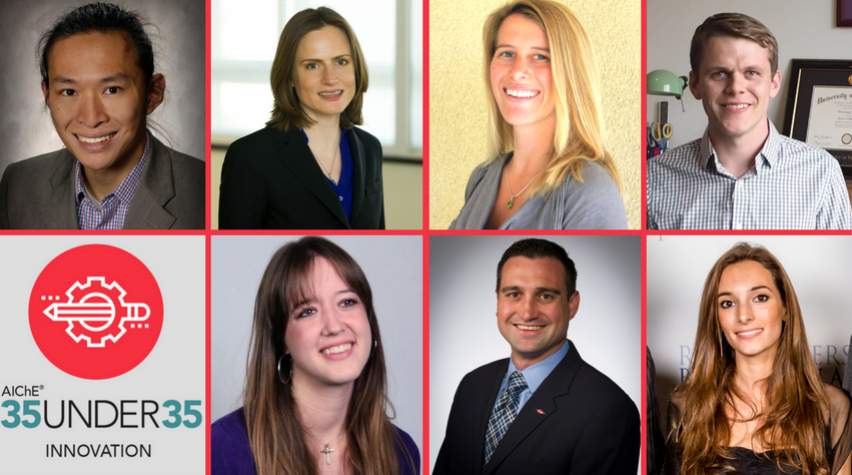
With support from the AIChE Foundation, AIChE and its Young Professional Committee (YPC) are honoring 35 notable young professionals under the age of 35 based on achievements in seven categories: bioengineering, chemicals, energy, innovation, educations, leadership, and safety. You can learn more about the award here.
The winners in all seven categories were announced in the August 2017 issue of CEP Magazine. Here on ChEnected, we’re featuring winner interviews conducted by YPC. This week, we're featuring winners in the category of Innovation. Winners are presented below in alphabetical order, by last name. Or you can click on their names in the list below to go directly to their interview. Be sure to congratulate the winners by sharing on social media with the hashtag #AIChE35Under35.
- Christina Borgese, 34
- Christoph Krumm, 28
- William Liechty, 33
- Francesca Mirri, 29
- Ruth Misener, 32
- Rebekah Scheuerle, 26
- Dawud H. Tan, 33
Christina Borgese, 34:
A passion for entrepreneurship

Christina Borgese is the co-founder PreProcess, which builds and scales first of their kind efforts from idea inception to commercial reality. In her capacity at PreProcess, Christina develops and scales innovations in a wide variety of industries including lithium, rare earths, consumer packaged goods, grid storage, renewables, and water.
Prior to her current role, she was a senior engineer at BioFuelBox and worked towards developing the world's first commercial scale supercritical biodiesel reactor. Chrstina has been honored with the following awards: the World Economic Forum Award at Davos for Technology Pioneering, 30 under 30 award by Manufacturing Engineering Media, Who's Who by the California Biodiesel Alliance, and University Award of Distinction by her alma mater, University of California, Santa Barbara.
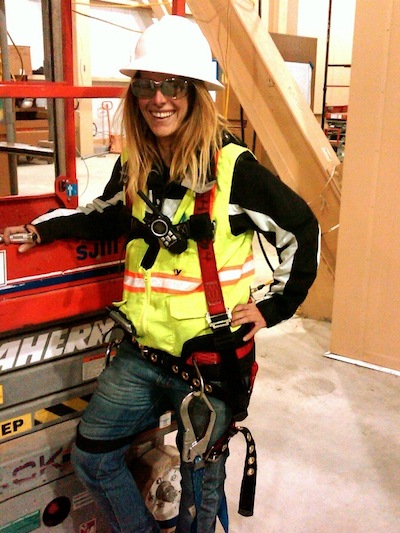
AIChE YPC: What inspired you to pursue chemical engineering?
Christina Borgese: From deconstructing poetry to constructing trebuchets in physics I thoroughly enjoyed school, especially anything to do with analysis or problem solving. As a congressional page I was enthralled with our legislative branch but the congresspeople I spoke with suggested getting an academic base outside the world of politics. A family friend, Marc Izzo, invited me to the Student Day at Boeing and I was immediately inspired by the realm of engineering. I applied to college as an electrical engineer. I was recruited by UCSB and met Dr. Bob Rinker, the founder of the chemical engineering department. His passion was infectious and he invited me up to UCSB to meet with Dr. Eray Aydil. They represented the commitment of the professors to the students as well as the opportunities and adventures to be had in industry. Needless to say, I changed my major before school even started.
AIChE YPC: Chemical engineering is a diverse field. How did you get involved in your specialty?
CB: I caught the startup bug in college while completing the Technology Management Program and I knew from that experience that I wanted to be involved in cutting-edge, first-of-their-kind technologies. I first fell in love with scale-up while I was working as a new product developer. I was developing a new form of solid particle and needed to determine is it could be manufactured at scale. I built a system and team to produce at a pilot and then semi works scale. I loved figuring out the intricacies of the system, including the critical control factors, test measurement validation, and dealing in pounds and gallons rather than grams and milliliters. From there, at a biofuels startup I was part of a team that scaled with the world's first commercial-scale supercritical biodiesel reactor. We took it from a lab to pilot to commercial scale in fourteen months and, although we worked six and seven days a week to make it happen, I was energized by the work.
AIChE YPC: What professional achievement are you most proud of?
CB: When it came time to crank up the first system I designed and built, my mentor said "it's your system; you press the button." I never thought that moment could be topped until a few years later when I was the mentor and got to see the mix of joy, excitement, and a bit of apprehension in the face of someone else when I told them, "it's your system; you press the button."
AIChE YPC: What do you enjoy most about your job?
CB: Running PreProcess is like composing and then conducting a symphony. First you write the music: laying out the engineering unit ops; guiding the analytical and development teams; and selecting and knitting together the team of teams to engineer and construct. Then you bring online the woodwinds, brass, percussion, and strings, except they are columns, tanks, piping, and valves, and you can feel the nuances of the body of the system as you commission, test, and balance the system.

Fun fact about Christina
What is your favorite book?
Harry Potter and the Goblet of Fire is 734 pages of pure bliss. (This one is not on Mrs. Dunlap's reading list.)
I loved figuring out the intricacies of the system including the critical control factors, test measurement validation, and dealing in pounds and gallons rather than grams and milliliters.
Learn more about Christina in CEP Magazine
Christoph Krumm, 28
Entrepreneur and Ironman competitor
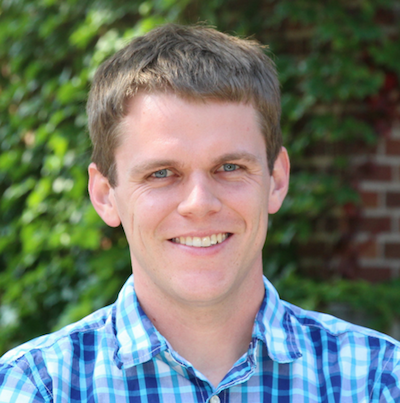
In his graduate research at the University of Minnesota, Christoph Krumm designed and built a breakthrough new micro-reactor technology for measuring the previously unknown kinetics of thermochemical biofuel production. Throughout this four-year project, he assisted in proposal writing, and led the design, prototyping, testing, and implementation of the reactor, ultimately leading to four publications and generating interest in the technique from R&D companies and national labs. Christoph was actively involved in AIChE on a local and national level, serving as a team leader and an outstanding researcher. On a local level, he participated on the University of Minnesota Joint Safety Team (JST), where his responsibilities included organizing safety protocols and ensuring compliance with local and university safety regulations.
Christoph is the recipient of multiple awards including: AIChE Catalysis and Reaction Engineering Award, 2015 DOW SISCA Innovation Prize, 2014 David C. Tilwick Fellowship, University of Massachusetts Amherst, 2014 Maden Research Award, University of Massachusetts Amherst, March 2014 Mary Gates Undergraduate Research Fellowship, 2011 NSF Graduate Research Fellowship Program, Honorable Mention, 2011 .
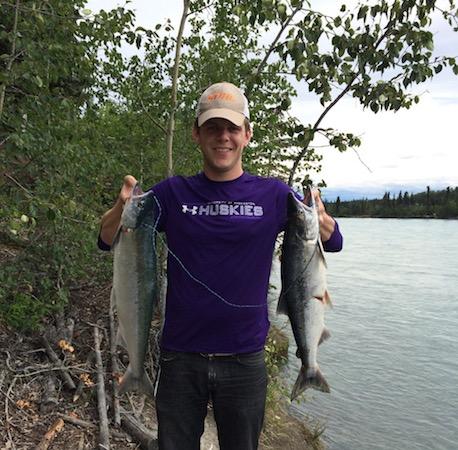
AIChE YPC: What inspired you to pursue chemical engineering?
Christoph Krumm: I had a middle school science teacher who got everyone really excited about science. Between explaining scientific concepts during Pinky and the Brain episodes and taking us on trips to see volcanoes, he made every scientific discipline fun. In college, one of my favorite courses was organic chemistry (believe it or not), but I enjoyed the process-design aspect of chemical engineering, which is how I ended up picking my major.
AIChE YPC: Chemical engineering is a diverse field. How did you get involved in your specialty?
CK: I first became interested in renewable energy when I joined a race car engineering program as an undergraduate. After designing the fuel system, I became interested in alternative fuels, and I pursued undergraduate research in microbial biofuel production. My research experience inspired me to pursue graduate school, where my research focused on catalytic reaction engineering for renewable fuel and chemical technologies.
AIChE YPC: What professional achievement are you most proud of?
CK: One of my proudest moments was receiving my first bit of funding to start Sironix Renewables. That was the point at which all the years of coursework and research finally came together into something which I had dreamt to do. I will never forget stopping in the middle of a crosswalk when I first got word.
AIChE YPC: What personal achievement are you most proud of?
CK: The personal achievement I am most proud of is finishing a team half Ironman with a group of friends in 2016. I took up road cycling when I started graduate school, and since then, it has been a great avenue to get away from the lab and the office.
AIChE YPC: What do you enjoy most about your job?
CK: I enjoy the flexibility of running a startup company and the challenges associated with it. One of the biggest daily challenges can be "what should I do today?", but this also gives me the opportunity to define a problem and come up with my own solution to it. Seeing all of the smaller tasks and projects come together into a company vision is hugely inspiring.
AIChE YPC: What are your goals for the future?
CK: I hope to continue to grow Sironix Renewables to develop numerous new eco-friendly technologies. Experiencing the entrepreneurial side of chemical engineering has opened my eyes to the impact that our discipline can have, and I hope to continue to positively impact my society through engineering and environmental stewardship.
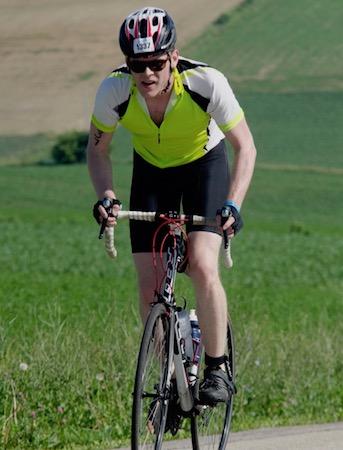
Fun facts about Christoph
Do you have any odd or quirky habits?
I generally have a terrible memory but I can remember numbers well, including middle school locker combinations and CD keys from computer games I played.
I enjoy the flexibility of running a startup company and the challenges associated with it.
Learn more about Christoph in CEP Magazine
William Liechty, 33:
Transforming interesting science into useful technology
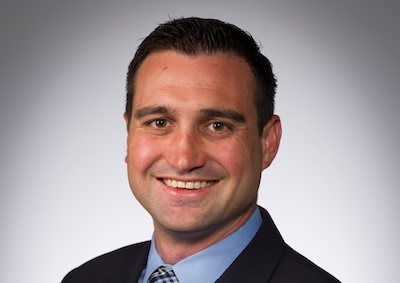
William Liechty is an associate research scientist in the Food, Pharma & Medical business at The Dow Chemical Company. He is currently focused on scale-up and commercialization of cellulose-based polymers with novel size-and-shape combinations for the pharmaceutical and food industries. In addition to R&D responsibilities, William manages the front-end of the innovation pipeline for the Food, Pharma & Medical business to ensure a robust supply of innovation projects.
William was president of the University of Iowa Student Chapter and has remained extremely active within AIChE throughout his graduate and professional career, including presenting papers at the AIChE Annual Meeting, and reviewer for the AIChE Journal and CEP. Recently, William was the Session Chair for "Innovations at the Product Design and Discovery Interface" in the Pharmaceutical Discovery, Development, and Manufacturing Forum.
AIChE YPC: What inspired you to pursue chemical engineering?
William Liechty: My chemical engineering moment of inspiration came in my first year at the University of Iowa. I was attending the engineering career fair as a nervous freshman clutching a new padfolio jammed full of resumes and eagerly seeking a summer internship. I was not a chemical engineering major at the time, having opted for another discipline. But I found myself attracted to many of the companies recruiting chemical engineers. I recall thinking that these companies were solving really interesting problems, from energy to materials to biotechnology. What quickly followed was a keen realization that chemical engineers can do almost anything. I went to my academic adviser later that week and requested a change in major. I haven't looked back since.
AIChE YPC: Chemical engineering is a diverse field. How did you get involved in your specialty?
WL: I became involved in my specialty through a series of outstanding mentors and professors. I had the opportunity to work with two very different research groups during my undergraduate degree; one project focused on polymerization kinetics and the other on enzymatic biocatalysis. The intersection of these experiences helped me solidify that I wanted to work at the interface of polymers and biology. When given the chance to work with Dr. Nicholas Peppas at UT Austin, one of the preeminent scientists and a true giant in the fields of biomaterials and drug delivery, I jumped at the opportunity. And now with Dow, I'm fortunate to stay closely connected with drug delivery technologies but also see how we can use chemistry and materials to solve pressing challenges in other industries. It is truly a fascinating time and place to be a chemical engineer.
AIChE YPC: What professional achievement are you most proud of?
WL: I have a lot of fun doing research. Personally, the most gratifying achievements come when I can amplify the results of my work beyond the immediate technical impact. As a PhD student, I drafted a grant proposal with my research advisor on responsive polymer systems for drug delivery that led to many rewarding outcomes. The funding helped us conduct some really interesting science, helped support two very talented PhD students, and start an immersive STEM outreach program for high school students. Recently, I've been involved with some great project teams at Dow that have brought two innovative products to market. The first is a family of pharmaceutical excipients for improved performance in direct compression tableting. The second is a family of cellulose-based products that can substantially reduce oil uptake in fried foods. It is immensely satisfying and rewarding to help something go from the lab to a viable commercial technology.
AIChE YPC: What is the most challenging part of your job?
WL: One of the most challenging aspects of my job has been building and cultivating the breadth of communication skills required to be productive and successful at a large company. In my project teams, I am always working with people from diverse backgrounds in different functions of the company and often located in different regions. The ability to generate concise, impactful communications is vitally important to advance the aims of my teams. These skills require deliberate development, and I try to get a little better each day.
AIChE YPC: What lesson do you wish you would have learned sooner?
WL: An important lesson for any R&D professional new to industry is how to ask for help. As a PhD student, one is expected to become a world expert in a narrow subset of a specialized field. PhD students help push the frontiers of knowledge and generate new insight through rigorous academic coursework, through careful experimentation and/or theory design, through self-guided learning, and through some trial and error. In industry, new research professionals are expected to do all this while optimizing the speed and efficiency with which a solution can be achieved. This can often include enlisting the help and guidance of colleagues, mentors, and subject matter experts inside (and occasionally outside) one's field. Knowing how and when to ask for help from others is a lesson best learned early.
AIChE YPC: What are your goals for the future?
WL: As an engineer, my goal is to help turn interesting science into useful technology. I want to help convert fundamental knowledge into a process or product that helps people do something safer, better, faster, cheaper, or even totally differently than they ever could have imagined. I want to be continuously learning and growing as a professional and look forward to challenging opportunities to solve problems, to build new skills, and to be a leader in my field.
Fun facts about William
What is the last online purchase you made?
1. Replacement watch band 2. Cycling cleats 3. Several scorpions embedded in poly(methyl methacrylate) as season-end mementos for my son's Little League baseball team, The Scorpions.
Personally, the most gratifying achievements come when I can amplify the results of my work beyond the immediate technical impact.
Learn more about William in CEP Magazine
Francesca Mirri, 29:
Fourth generation engineer
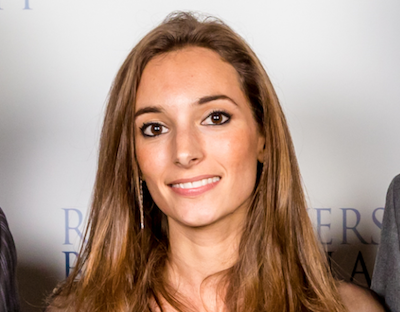
Francesca Mirri is a research scientist at Rice University . Her research focuses on carbon nanotube synthesis and characterization of carbon nanotubes in solution using X-ray and neutron scattering techniques. She is also involved in the development of lithium ion batteries made out of carbon nanotubes for wearable electronics applications. Francesca was the recipient of the 1st place Nanomaterials Graduate Student Award at the the Nanoscale Science and Engineering Forum session in 2015.

AIChE YPC: What inspired you to pursue chemical engineering?
Francesca Mirri: In my family, we have been engineers for four generations, so I have always been exposed to and fascinated by science. Physics, mathematics, and chemistry were the classes I liked the most in high school, and chemical engineering seemed like the perfect combination of all these disciplines.
AIChE YPC: Chemical engineering is a diverse field. How did you get involved in your specialty?
FM: While visiting Rice University as an undergraduate student, I became interested in the research done in the group where I ended up getting my PhD. I was really fascinated by nanomaterials and excited at the prospect of working in a cutting-edge field like nanotechnology.
AIChE YPC: What professional achievement are you most proud of?
FM: Being awarded both the best engineering thesis and the best invention awards last year at Rice University. On one side, it was the validation of all the research I had done during my graduate years. At the same time, I proved to myself that I was able to turn an original idea into an innovative product.
AIChE YPC: What is the most challenging part of your job?
FM: Research does not always turn out the way you expect it to. Understanding what might be wrong with your experiments and trying to find alternative ways to interpret your results is the most challenging and, at the same time, the most fun part of my job.
AIChE YPC: What do you enjoy most about your job?
FM: I enjoy the feeling of contributing to technologies that could have a big impact on our future and the many opportunities of exchanging ideas with very talented individuals.
AIChE YPC: What lesson do you wish you would have learned sooner?
FM Do not be the one imposing limits on yourself. Sometimes I found myself wondering if even trying was worth the effort. With time, I realized the importance of getting out of my comfort zone, even if it might look scary at first. Looking back, those scary decisions turned out to be the most important ones I made.
AIChE YPC: What are your goals for the future?
FM: I would like to keep doing research in a stimulating environment and I hope to lead my own research team one day.

Fun facts about Francesca
If you were not a chemical engineer, what would you be?
Physician
I enjoy the feeling of contributing to technologies that could have a big impact on our future...
Learn more about Francesca in CEP Magazine
Ruth Misener, 32:
Optimizing chemical and biological processes

Ruth Misener is a lecturer (equivalent to an assistant professor in ) & Royal Academy of Engineering Research Fellow in the Imperial College London Department of Computing. The foundations of Ruth's research is in numerical optimization algorithms and computational software. Current applications include bioprocess optimization under uncertainty, and petrochemical process network design and operations. Ruth is actively involved with AIChE, including acting as director for the Computing and Systems Technology Division. She is also the recipient of several awards, including the 2017 Sir George Macfarlane Medal .

AIChE YPC: What inspired you to pursue chemical engineering?
Ruth Misener: My father recommended chemical engineering because I've always been keen on mathematics. He said that chemical engineering had some of the most challenging and beautiful mathematics of any engineering discipline. I've always liked the combination of theory and applications.
AIChE YPC: Chemical engineering is a diverse field. How did you get involved in your specialty?
RM: As an MIT undergraduate, I participated in a research program (UROP) pairing undergraduate students with experienced researchers. Professor Paul Barton let me join his Process Systems Engineering Laboratory for the summer. In Professor Barton's lab, I collaborated with PhD candidate Alexander Mitsos (now Professor at RWTH Aachen) and postdoctoral associate Dr. Benoit Chachuat (now Reader at Imperial). I thought that their research, using dynamic optimization to design a fuel cell with effective start-up kinetics, was so amazing!
AIChE YPC: What is the most challenging part of your job?
RM: Juggling the different aspects of academic life is challenging. Research and teaching have to compete with urgent administrative tasks, such as employment contracts and committee meetings. Long-term goals have to compete with short-term deadlines.
AIChE YPC: What do you enjoy most about your job?
RM: I enjoy working with the researchers in my group. I'm privileged to work with talented, motivated PhD candidates, postdoctoral associates, and undergraduate thesis students. Working with creative, energetic researchers makes my job new and exciting everyday. They're always innovating and pushing boundaries, so my favorite part of my job is discussing research with the group members.
AIChE YPC: What lesson do you wish you would have learned sooner?
RM: My PhD advisor Professor Christodoulos A. Floudas passed away in August 2016. Professor Floudas' death was a huge loss for both his family and the chemical engineering community. It was also a personal loss for each of us who Chris mentored. I will always miss Chris, but it has been a big blessing for me that colleagues in process systems engineering (PSE) have taken the time to substitute for Chris. Chris always promised me that he would support and mentor me for the duration of my career. Chris may not be here anymore, but, through the PSE colleagues, he has kept his promises. Professors Stratos Pistikopoulos, Ignacio Grossmann, and Claire Adjiman provide support that Chris used to give. The broader PSE community now offers the mentorship that used to come from Chris. I always knew that my PSE colleagues were excellent researchers. But I didn't realize the depth of love and respect in the community. For me, Chris still lives through the support and mentorship of my colleagues.
AIChE YPC: What are your goals for the future?
RM: My team and I want to continue innovating at the intersection of chemical engineering, computer science, and operations research. We aim to develop industrially relevant decision-making methodologies for optimizing chemical and biological processes. Our contributions are grounded in effective mathematical models, numerical optimization algorithms, and software implementations.

Fun facts about Ruth
What app do you use the most?
Citymapper! There's a lot to do in London. Citymapper always gets me there.
Working with creative, energetic researchers makes my job new and exciting everyday.
Learn more about Ruth in CEP Magazine
Rebekah Scheuerle, 26:
Global access to medicine
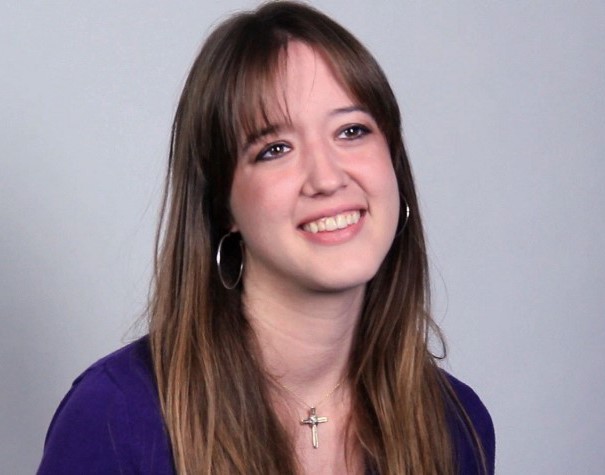
Rebekah Scheuerle serves as a Board Member of JustMilk, where she has been characterizing and developing devices for administering medicines and nutrients to breastfeeding infants. These devices could be especially useful for drug delivery in low-resource settings, where refrigeration, literacy, and potable water limitations can serve as challenges in administering medicines to infants. Next month, Rebekah looks forward to taking the next step in her career by starting in the GSK Vaccines R&D Future Leaders Program. She recently finished her PhD in Chemical Engineering at the University of Cambridge where she focused on using standard and novel methods for characterizing JustMilk devices.
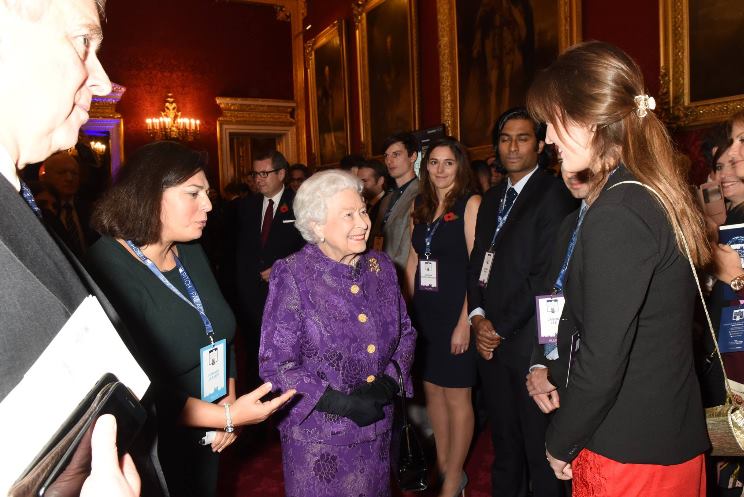
AIChE YPC: Chemical engineering is a diverse field. How did you get involved in your specialty?
Rebekah Scheuerle: I am passionate about increasing access to medicine globally. For this reason, I conducted my doctoral research on drug delivery devices for administering medicines to infants during breastfeeding in low-resource settings. I also conducted public health research, assisting with the investigation of drug delivery practices to infants in Limpopo, South Africa, and assisted with an acceptability study for the JustMilk device there. I was first introduced to research through my work in the Peppas Lab, and first realized the potential to use my interest in pharmaceuticals, vaccines, and devices for the improvement of global health during my REU at U.C. Berkeley, where I focused on developing an HIV diagnostic.
AIChE YPC: What professional achievement are you most proud of?
RS: I am most proud to have successfully co-pitched the JustMilk project to win Pitch@Palace 5.0, a national start-up competition hosted in St. James' Palace, put on by His Royal Highness the Duke of York (Prince Andrew). Success in this competition brought JustMilk visibility by potential partners and investors, as well as gave us credibility that assisted us in securing more funding.
AIChE YPC: What personal achievement are you most proud of?
RS: I am proud to have received the Bill Gates Senior Award last year, through nomination by my Gates Cambridge peers. This award honored my work with JustMilk and also recognized the legacy of my presidency of the Gates Cambridge Scholars' council. With my council, we successfully lobbied the Trust to offer comparable funding for living expenses to scholars writing up their PhDs to those still conducting research, significantly improving scholar welfare during this critical time.
AIChE YPC: What is a challenge you overcame and how did you overcome it?
RS: During my PhD, it was challenging to find an active pharmaceutical ingredient easily detectable in human milk, a critical task to characterize JustMilk drug delivery devices. Although the university lacked facilities to detect the compound I wanted, I was able to form a collaboration with a nearby national lab with the analytical equipment I needed. I encourage all graduate students to be creative when looking for resources and expertise for conducting their research.
AIChE YPC: What is the most challenging part of your job?
RS: The most challenging part of my job has been to develop studies and methods for testing the novel drug delivery device we are developing. Since the device is unlike any on the market, we have built and designed new studies for testing it, which has required a lot of creativity. For example, we built a tongue mimic to simulate the impact of infant tongue motion against the device during use in vitro.
AIChE YPC: What do you enjoy most about your job?
RS: I enjoy communicating with potential end users of the devices JustMilk is developing, and appreciate being able to bring their perspectives to the public. I take very seriously the opportunity to spread awareness of the challenges associated with delivering safe doses of pediatric medicines globally. I carefully describe their needs and context when pitching and discussing JustMilk with industry leaders, funders, and journalists that can help make a difference.
AIChE YPC: What are your goals for the future?
RS: In the future, I will strive to continue working on the global accessibility challenges of vaccines, medicines, and devices in low-resource settings. I am particularly interested in better serving emerging markets by increasing their access to these healthcare products through creative engineering, regulatory, and business strategies.
Fun Facts About Rebekah
What is your favorite book?
1984
I am passionate about increasing access to medicine globally.
Learn more about Rebekah in CEP Magazine
Dawud H. Tan, 33:
Striving for personal best

At 3M, Dawud Tan has collaborated with co-workers in the areas of melt blowing and nonwovens. Located in the Corporate Research Process Laboratory (CRPL), their efforts are focused in R&D areas that can impact various divisions. Working together with manufacturing and design engineering experts, he is currently scaling up a technology that was originally developed in CRPL. Dawud is currently volunteering with AIChE as one of the Young Professional Mixer Coordinators for 2017 Annual Conference & 2018 Spring Meeting.
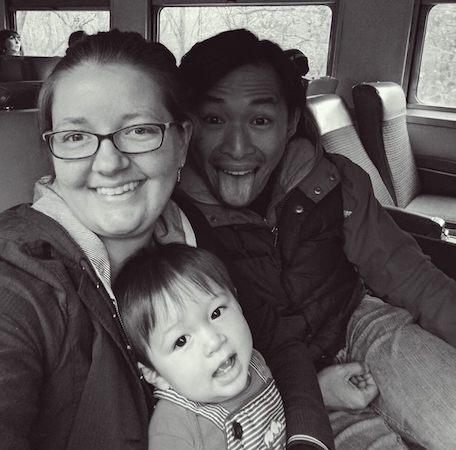
AIChE YPC: What inspired you to pursue chemical engineering?
Dawud H. Tan: The diversity of things you can do with a chemical engineering degree.
AIChE YPC: Chemical engineering is a diverse field. How did you get involved in your specialty?
DHT: I got involved in my specialty starting in graduate school.
AIChE YPC: What professional achievement are you most proud of?
DHT: Finishing my doctorate degree at University of Minnesota.
AIChE YPC: What personal achievement are you most proud of?
DHT: My never-ending personal development starting from when I immigrated from Indonesia after high school graduation up to now, and some more to come.
AIChE YPC: What is a challenge you overcame and how did you overcome it?
DHT: Language barrier for the first few years after arriving in USA. I overcame it by forcing myself to not be shy and interact with other English-speaking people around me.
AIChE YPC: What is the most challenging part of your job?
DHT: Choosing the "right" project to work on, especially given the high number of interesting projects available at 3M.
AIChE YPC: What is the hardest decision you have had to make?
DHT: Deciding between going back to Indonesia to be permanently closer to my family or getting a doctorate degree after obtaining my bachelor's degree, knowing that choosing one would eliminate the other. In hindsight, I couldn't be happier with my decision. I've been able to balance between staying close with my family in Indonesia and having a lot of fun at work due to my advanced degree. There's always a happy medium! ;)
AIChE YPC: What do you enjoy most about your job?
DHT: Working on tough problems with great co-workers.
AIChE YPC: What lesson do you wish you would have learned sooner?
DHT: Fail fast and fail often.
AIChE YPC: What are your goals for the future?
DHT: To always strive to be the best for myself, my work, and society.
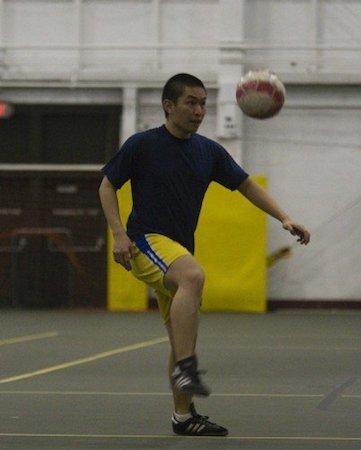
Fun facts about Dawud
Who do you admire most?
Lionel Messi
I've been able to balance between staying close with my family in Indonesia and having a lot of fun at work due to my advanced degree.
Learn more about Dawud in CEP Magazine
Doing a World of Good

This award is proudly supported by the AIChE Foundation. Learn more about the Doing a World of Good campaign and how you can be a part.
Be the Next 35 Under 35 Award Winner
Not an AIChE member? Learn more about membership and its benefits.



Comments
Good to see Christina make the cut. I have worked alongside her in the field and enjoyed some time at conferences. Her passion, experience and diverse knowledge are impressive. She surrounds herself with good people as well.